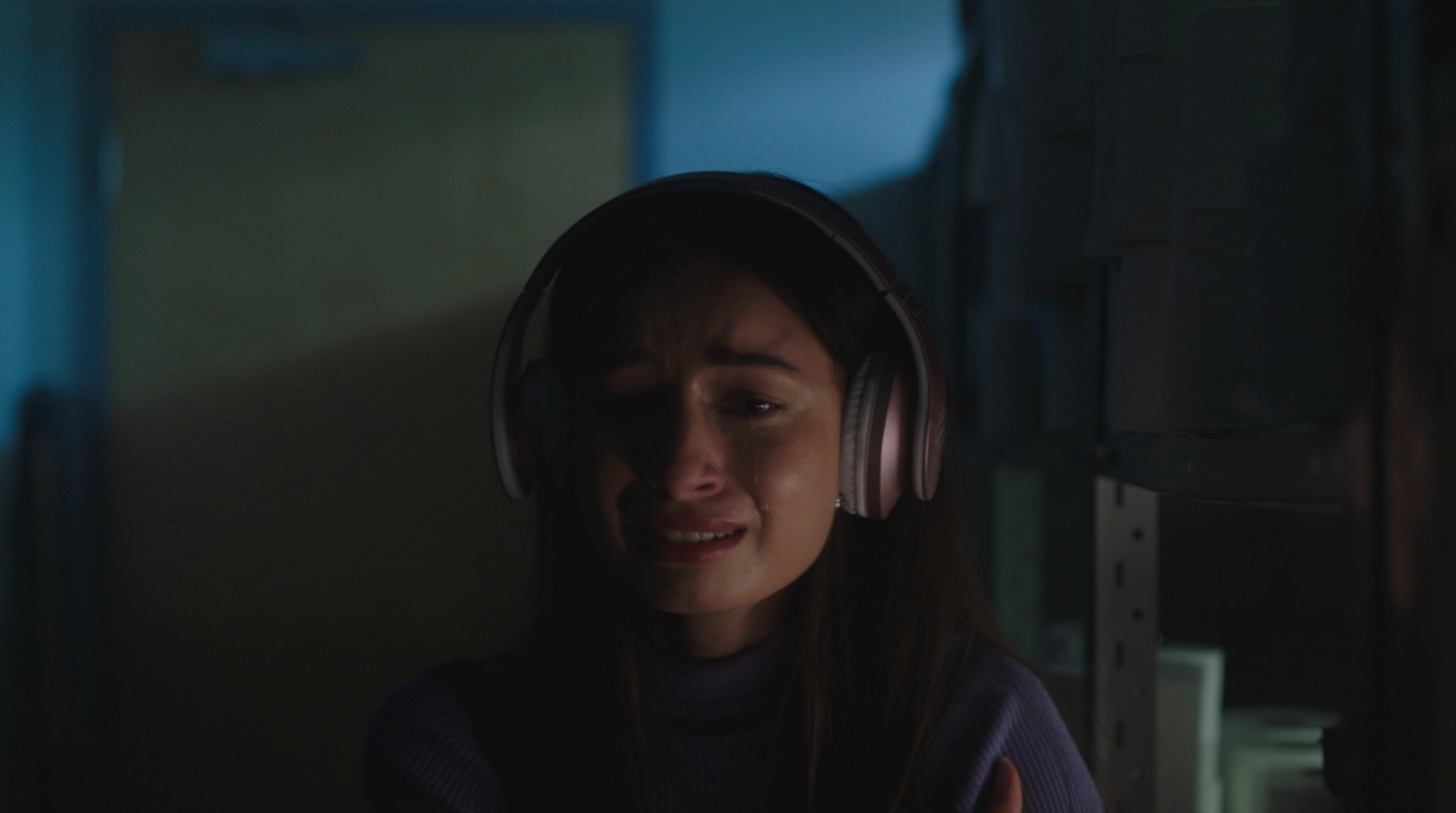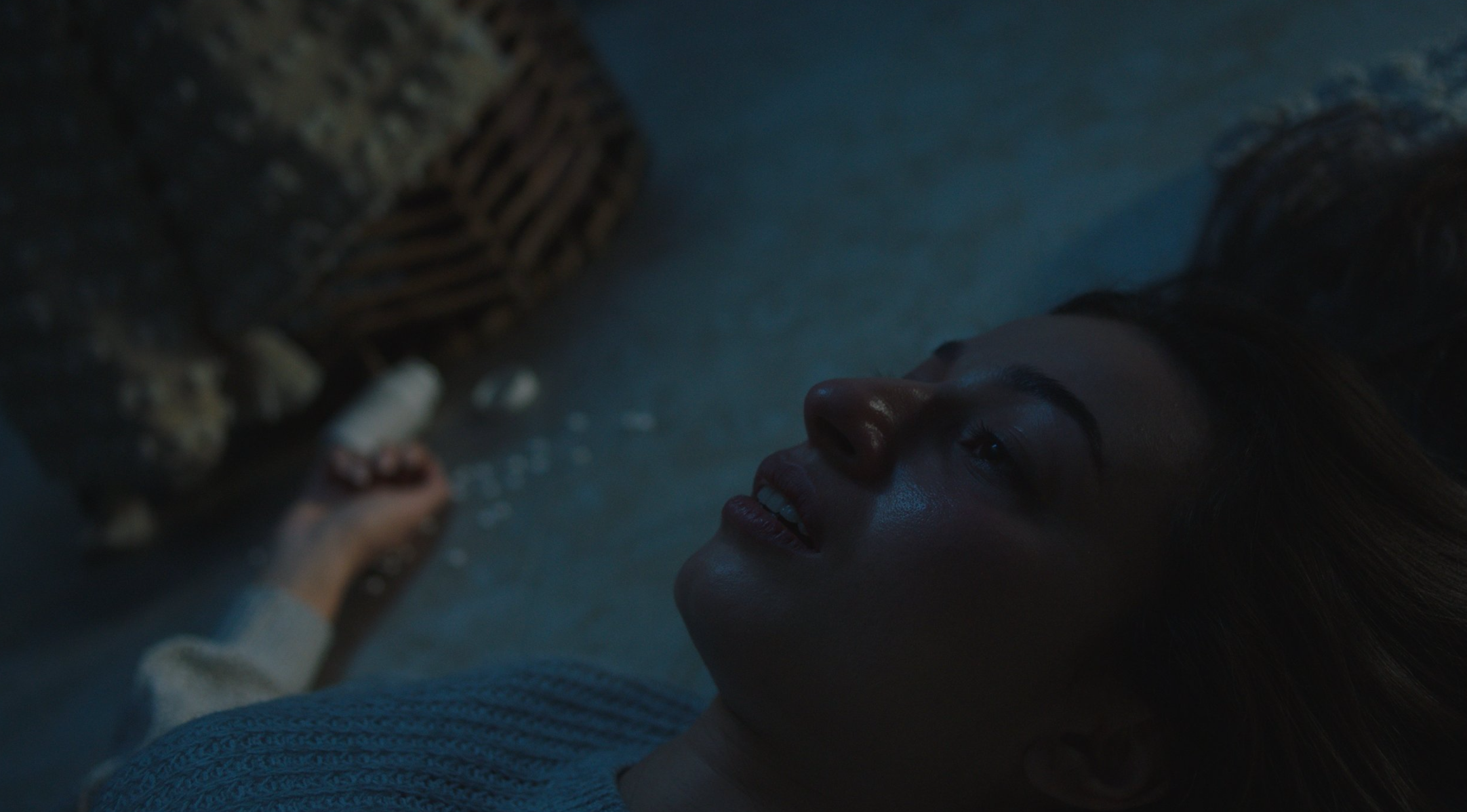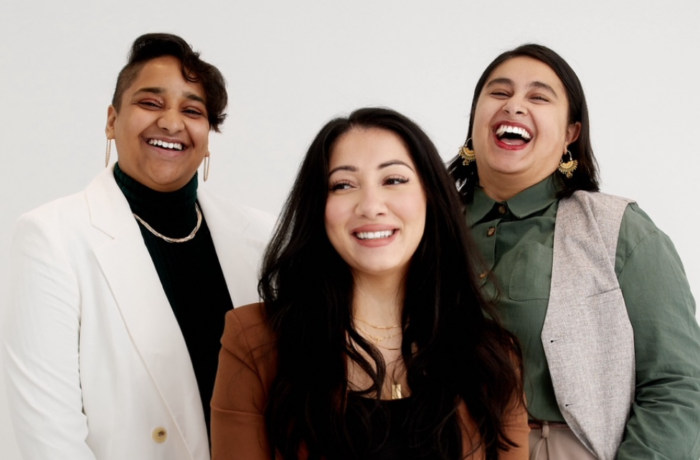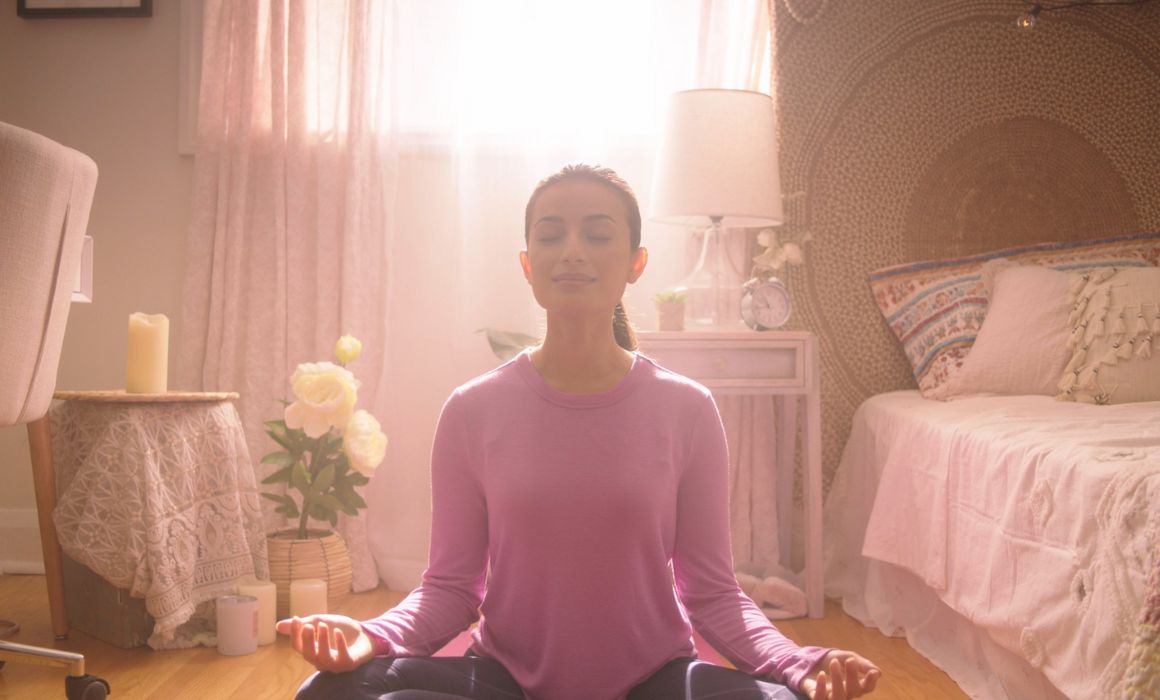Content warning: This post discusses suicide.
Rare and wonderfully familiar, Get Up Aisha, CBC Gem’s latest web-series, is a ground-breaking exploration into the complicated, chaotic mind of a young South Asian girl as she comes of age while dealing with depression.
The sitcom follows Aisha Rehman (Sana Asad), a high-functioning Type A Pakistani Canadian university student who is striving for a whole lot: to score all As, maintain a supportive relationship with her family and boyfriend, and to seem perfect in all areas while actually feeling totally out of control underneath it all.
Things take a turn when she survives a suicide attempt that later leads to her being diagnosed with depression, and pushes her to reevaluate her priorities and discover who she really wants to be.

Four years in the making, the sitcom is the lovechild of co-creators, writers, and producers Rabiya Mansoor, Nisha Khan, and Marushka Jessica Almeida. The trio met back in 2018, when Nisha put out a call for women writers of colour to get together and form a support network. As Khan says, “It was a natural friendship that turned into work partners.”
The idea came about when the group realized they’ve all had a South Asian friend who seems to have it all together on the surface, but is struggling underneath. They all could relate, too, coming from brown homes where expectations start at 100.
“We all have that pressure of putting on a happy face, always trying to do well, making sure nobody knows that you’re suffering,” says Mansoor. “To showcase a South Asian girl like that was something we wanted to explore because it hasn’t been seen on screen before.”
The show features several specific touchstones for the creators. When Aisha head-bangs in the closet to metal music to release a little pressure, that’s all Almeida. Mansoor, meanwhile, has dealt with depression herself in the past, and while her parents were “privately supportive” and encouraged her to go to therapy, take time off from school and come home, they’d tell curious friends and family that she was just taking online classes.
“I was having such a hard time just functioning, and that experience made me feel so confused and like I should be ashamed about how I’m feeling,” she shares. “I think that that’s such an unfair burden to put on kids.”
It’s a mindset that is familiar to many South Asians; in our community, the mere concepts of mental health, depression, and therapy are considered taboo. It’s one thing to confess all to your parents, but to everyone else? What would people think?

As Khan (who also lives with depression and anxiety) shares, when she met Mansoor, she was shocked to hear her be open about going to therapy — and that her family knew. (Writer’s note: This is, truly, unprecedented.) In Khan’s family, if something was bringing you down, you’d turn to god and “pray about it.”
“They’d say ‘this is happening because you’re not religious,’ and praying asking for help is how you become closer to God,” adds Mansoor. “As an adult, I understand where they were coming from; our parents did not have the resources. They were told therapy is crazy; telling other people your problems is wrong in their heads. So, in the show, being able to showcase different ways of dealing with mental health was important.”
We do indeed see a relatively supportive mother when it comes to Aisha, who also believes god can be her saviour in all things. The hope, the creators say, is that Asian families will be able to watch the show together and understand what their children might be going through, and maybe what they went through in the past but were unable to put words to.
“We all have that pressure of putting on a happy face, always trying to do well, making sure nobody knows that you’re suffering. To showcase a South Asian girl like that was something we wanted to explore because it hasn’t been seen on screen before.”
Producer Rabiya Mansoor
When Mansoor’s mother-in-law and aunt, both of whom are in their 60s, came to the show’s premiere, they resonated with it, and particularly found the series’ pivotal sixth episode, which sees Aisha visit the mosque and pray, and explore religion’s intersection with mental health, to be “powerful.”
In that way, Get Up Aisha is a rare instance where western viewers get to see a positive representation of Islam; even the opening theme, which drives through Scarborough, you get a casual glimpse of a mosque. That alone is enough to make a Muslim feel seen, normal. You can count on one hand shows that do similar: Ramy, Mo, Ms. Marvel, and the dearly departed We Are Lady Parts.
Despite there being over 1.9 billion Muslims in the world (that’s a quarter of the world population), according to a 2022 report by the University of Southern California’s Annenberg Inclusion Initiative, Muslims only represent one per cent of television characters in Hollywood. And even then, most of them are portrayed in a negative light, often associated with violence.

That’s why every little detail — like the shot of the mosque in the theme — in Get Up Aisha was “very intentional.” Khan explains, “That’s one of the biggest things that we struggled with, and in also keeping it realistic. We’re so used to seeing one side of how religion, especially Islam, looks in the media that we were like, ‘Okay, this is part of our identity, let’s not shy away from it. Let’s sit down and really think about how we want it shown to a broader audience.’”
The trio considered every facet: what type of Muslim Aisha might be, how does she dress, what are her views on religion, how religious is, did she grow up with religion, and what about her mom?
It was important work, as Almeida says, “One of the goals of this show is to humanize Muslims. We’ve been villainized for so long in the media that having moments like this feels really revolutionary.”
It’s rung true for others, too; after the premiere, she remembers a Sikh person coming up to her and sharing how much they related to the scene in the mosque, and how it reminded them of going to the gurdwara and finding peace and solace in praying. Which is, after all, a universal act.
Oh, and fun fact: Aisha has a boyfriend! Why is this ground-breaking? Because it’s especially rare to see a Muslim girl young, in love, and dating on a TV series. The creators got a little pushback early on about this detail and it “not being Islamic”, but that’s the reality for so many modern Muslim women who also maybe don’t pray five times a day and wear a hijab. Yes, imperfect Muslims exist, too.
“One of the goals of this show is to humanize Muslims. We’ve been villainized for so long in the media that having moments like this feels really revolutionary.”
Producer Marushka Jessica Almeida
Finally, here’s the cherry on top of it all: despite what might so far seem like pretty heavy subject matter, the six-episode series is very much a comedy (featuring the hilarious talents of Zarqa Nawaz as Aisha’s mom and Ann Pornel as her therapist). It’s designed and styled after classic ‘90s sitcoms, while imbuing the brightness of Clueless and To All the Boys I’ve Loved Before.
The first season, which will soon be available globally on getupaisha.com and is available right now to Canadians on CBC Gem, hopefully won’t be where Aisha’s journey ends — you just gotta make sure you watch.
“We want to show that there’s an audience for this,” says Mansoor. “That this is content that people not only from the South Asian diaspora but from across Canada and across the globe are wanting to watch. And then, hopefully, we can turn it into a half-hour series and do it on a much, much bigger scale.”
If you or someone you know is struggling, here’s where to get help:
- Canada’s Suicide Crisis Helpline: Call or text 988.
- Kids Help Phone: 1-800-668-6868. Text 686868. Live chat counselling on the website.
- Canadian Association for Suicide Prevention: Find a 24-hour crisis centre.
- This guide from the Centre for Addiction and Mental Health outlines how to talk about suicide with someone you’re worried about.
- For more culturally competent resources in Canada, check out this resource from Blossom Mental Health Fund
Like this post? Follow The RepresentASIAN Project on Instagram, TikTok and YouTube to keep updated on the latest content.











